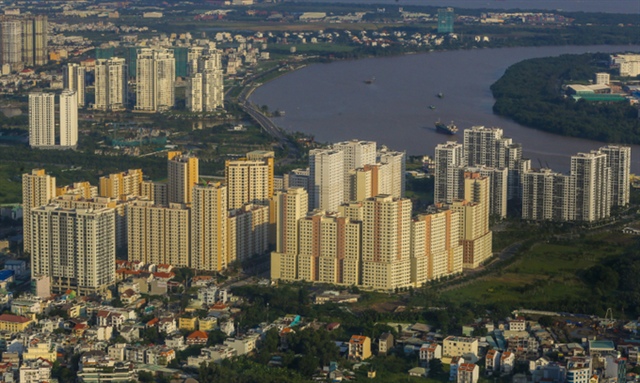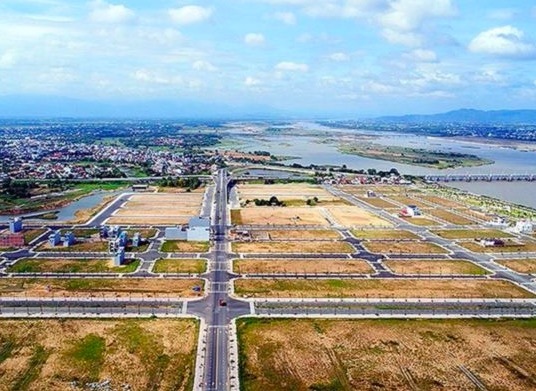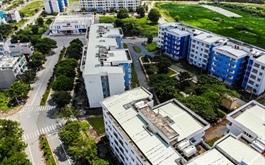Too many challenges in social housing development: companies
Too many challenges in social housing development: companies
Several difficulties, including low profit margin and complicated procedures, are making real estate developers reluctant in developing social housing projects despite high demand.
Apartment buildings are seen in District 2, Ho Chi Minh City. Photo by VnExpress/Quynh Tran |
In 17 manufacturing hubs across Ho Chi Minh City, only 8 percent of staff are living in designated accommodation, while the rest rent externally, chairman of HCMC Real Estate Association (HoREA) Le Hoang Chau told a recent forum.
The biggest employer in the city, footwear maker Pouyuen in Binh Tan District, have 80 percent of employees renting houses in the neighboring province of Long An, he added.
The biggest obstacle is profitability, industry insiders revealed.
Le Huu Nghia, director of construction company Le Thanh, which has years of experience building low-cost housing, said the profit margin of only 10–15 percent from social housing projects is much lower than that of commercial equivalents.
Building such projects takes about five years and could rob businesses of the opportunity to make more money elsewhere, he said, adding pressure from shareholders also push developers to neglect social housing.
Truong Anh Tuan, chairman of real estate developer Hoang Quan Group, hailed as the biggest social housing developer in Vietnam, said the 10 percent profit margin of a social housing project is much lower than 50 percent of commercial projects.
Though the company still conducts social housing projects, it has prioritized commercial projects to ensure profits, he added.
The government had set a target of 12.5 million square meters of social housing in 2016-20, but only managed 5.2 million square meters, according to the Ministry of Construction.
This translates to 104,200 units over 249 projects.
Another major challenge for developers is complicated procedures in social housing projects, other industry insiders stated.
"It is much more difficult and longer to complete a social housing project than a commercial counterpart. Some have not finished in three years," said Nghia.
There are currently no separate construction standards for social housing but instead standards for commercial projects are used, he said.
Official post-construction examination is also a burden as companies are more strictly assessed to see if they have committed any violations, he added.
"There are challenges from the beginning and even after construction is completed, which is why we do not meet social housing targets."
Some other difficulties in developing social housing projects HOREA has pointed out are delays in government funding disbursement, high taxes, profit margins that cannot exceed 10 percent of the total investment, and high legal risks.
The Ministry of Construction has proposed VND30 trillion ($1.32 billion) be spent on developing social-distancing housing in the form of credit.
Other incentives such as lower value-added tax, corporate income tax, and loan interests should also be given to real estate developers of this type of housing, it added.

























